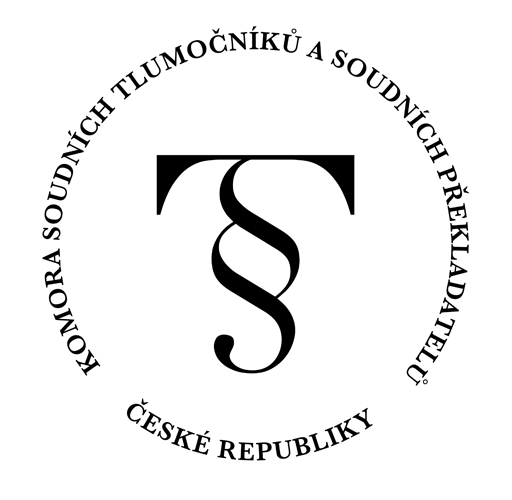obracím se na vás s velkou prosbou o vyplnění dotazníku v angličtině. Je od prof. Daniela Gila (doufám, že si na jeho model úsilí pamatujete ještě snad trochu z výuky), který se chce v jedné budoucí odborné stati zabývat mimo jiné právě i aplikací teorie tlumočení v praktické výuce tlumočení. To jest, zda třeba při výuce simultánního tlumočení/konsekutivního tlumočení/listu či notace atd. jste od vyučujících slyšeli: "jen si vzpomeňte na... autora XY a co říkal o anticipaci, o vynaloženém kognitivním úsilí, o generalizaci, konkretizaci, o strategiích KISS, deverbalizaci, že si máte psát zejména návaznosti, jaké taktiky použít při retouru atd..." Pokud si nepamatujete, či jste nic takového neslyšeli nebo neměli, tak pochopitelně také uvedete. Jeho zajímá, zda se v průběhu let něco změnilo.
Proto se snažíme oslovit co největší záběr absolventů z různých let existence vyučovaného oboru Tlumočnictví - po celé Evropě.
V dotazníku níže, který si zkopírujete do souboru ve wordu, je uvedena e-mailová adresa prof Daniela Gila, na kterou, prosím, dotazník přímo pošlete.
Předem děkuji za váš čas věnovaný vyplňování dotazníku.
Srdečně,
Ivana Čeňková, ÚTRL FF UK
Questions for personal narrative of experience as a student of conference interpreting
Through this short questionnaire, we are trying to look at the presence/absence/influence of theoretical thinking and formal theories in the training of conference interpreters at various times in various places from the 1970s onwards, the overarching question being whether and to what extent theory was actually influential in various training programs worldwide at various periods.
This research endeavor includes no judgement, no quality ranking, no criticism or praise of theories, teachers or training programs; we are just trying to establish facts about individual perceptions and memories. Your cooperation would be highly appreciated.
The identity of respondents will be treated as confidential, unless contributors explicitly write to us they do not wish to remain anonymous. You may use your real name, or invent a name (an alias), and then send your questionnaire to someone you trust who will forward the file to us on your behalf without disclosing your identity. You can send your response in English, French, German, Portuguese or Spanish to daniel.gile@yahoo.com. If you wish to be informed of findings, please indicate a mail address to which it can be sent.
Preliminary question: if you were trained as a conference interpreter at one or several institutions, please indicate each and the year/s during which you were trained at each.
Institution:
Years:
If there are more than 2, we would be grateful if you could reply to the questions for each.
1. Types of classesAs you remember them, what types of classes were given at your institution for conference interpreting students?
- Practical interpreting classes? Yes/No
- Thematic classes (economics, international institutions etc.)? Y/N/F
- Classes in theory? Y/N/F
- Classes in research methods? Y/N/F
2. Classes in theory and research methods
- If the program included theory and research methods, how many such classes were there, over what time? (One or two semesters, throughout the training program?)
- What theories/authors were studied in such classes? Do you remember names?
- Was there one dominant theory/or two? Y/N/F.
- If so, which theory was it/theories were they?
- Did students have to write a research paper or research thesis? Y/N/F
3. Theory in practical classes
Was theory (what you perceive as ‘theory’, not necessarily according to a formal definition) mentioned in practical interpreting classes? Y/N/F
If so, by most teachers? A minority of teachers? Just one or two teachers?
4. Training paradigm
- As far as you remember, did all teachers follow the same principles and methods when giving classes? Or was there some individual variation? Or much variation?
- All with same principles/Some individual variation/Much variation
- Did you feel there was a strong common conceptual/theoretical basis underlying individual classes? Y/N/Not certain
Are there any comments or pieces of information you would like to add?
Many thanks. Your contribution is highly appreciated.